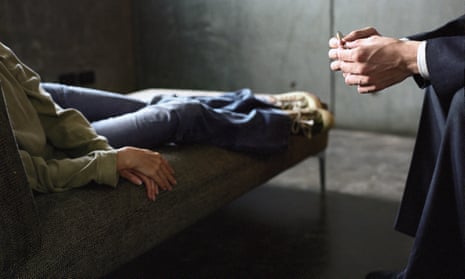I am talking to one of my patients who is depressed. They tell me they have been struggling to sleep and are feeling low, with no appetite any more. Sometimes they say they even wake up thinking that life isn’t worth living; it can feel like it’s all too much to cope with. As their psychologist, I’m offering them advice: telling them about the power of exercise, why sleep and diet are both so important and how to recognise and challenge their negative thoughts.
But there’s one thing I don’t share with them – the fact that recently I’ve started wondering if I might be feeling the same way, if I too might be depressed.
This is the situation I found myself in several years ago. I’d been working as a qualified psychologist in adult mental health services for several years, helping people with all sorts of psychological problems. I naively thought this might make me immune to any mental challenges myself. But that simply wasn’t the case, and isn’t for almost half of my colleagues, who, according to a new study, suffer from symptoms of depression too.
A whole combination of things led to my depression: pressures at home, financial difficulties, illness and working on the frontline of mental health services in this country. All these conspired together to contrive a situation where, on that particular day, there were two people with depression in the consulting room.
As a psychologist I was very aware of what the early signs of depression were. You can’t see that you are not thinking straight. You jump to conclusions, get stressed by minor difficulties and problems, and question yourself. I felt all of these things. Despite knowing the signs, I thought that it was just a transitory thing – the ups and downs of everyday life.
But then I crashed. My family knew that I’d been having sleep problems and I’d been to the GP to get some sleeping pills, but they didn’t work. Then one morning the time came for me to get up and go to work, and I just couldn’t.
It was at that moment I realised something was desperately wrong. My partner phoned my work to tell them that I wasn’t well, without going into any detail, and drove me round to see the GP, who gave me some more pills (antidepressants, this time), which didn’t work either, and then some more.
I began to wonder if I would ever get over it. I felt as if I were in the bottom of a deep valley with sheer, unclimbable rock faces towering above me on either side and I just couldn’t see the path out.
Then I started thinking about all the things that I would say to the people who came to see me in my clinic. “Have you tried keeping a thought record?” “Try thinking about some of the things that you really enjoy.” But all the tips that I would normally give people – exercise, challenging negativity – I couldn’t do any of them. I couldn’t even get out of bed. Now I really had an insight into what the people that I worked with felt like.
Finally, the doctor found the right sort of pills that suited me. And then things started very slowly to get better. I got out of bed, I walked, I talked and I began sleeping properly again. I went to see a psychologist who worked in another part of the health service for some sessions of cognitive behavioural therapy for depression.
My brain had felt frozen for so long, but with all this help it suddenly started to thaw, and I plucked up the courage to tell my work why I had been away. They were brilliant. I had lots of cards and people sent flowers too.
After several months, I went back to work. At first half a day and then a whole one, and then a couple, then two or three and then a whole week.
Has this experience changed me? I’m still a psychologist and I think that I probably know how to look after myself much better now, to pace myself better, and to talk more, as well as just to listen. And I have a brilliant supportive partner, and family, friends and colleagues. But sometimes, if someone comes to see me and they tell me that they are depressed or have been depressed, I say, “I think I know something about what you might be feeling.”
In a strange way, I’m so glad that I had that experience. It may even have made me into a better psychologist. I can certainly empathise with people on a different level than before. And sometimes, when it’s appropriate, I tell people that I’ve been down into that deep valley too.
